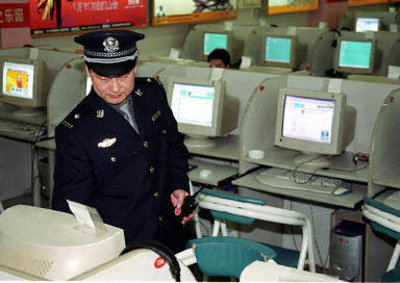According to a government spokesman, the committee’s main task will be to provide ‘academic advice’ to relevant law enforcement agencies. It remains unclear what ‘academic advice’ constitutes and who intends to heed it. This move is not about implementing actual legal reforms or calling for the release of prisoners of conscience, but rather aims to pacify the vocal critics of Thailand’s crackdown on free speech.
Following Abhisit’s comments, the Bangkok Post reported on efforts by the Department of Special Investigations (DSI) to increase cyber-policing, celebrating the cooperation of ‘government agencies, research agencies and educational institutions’ in building digital forensic resources. According to the Post, DSI has partnered with two Thai universities to train students in assisting government cyber investigations. As legitimate as Thailand’s lèse majesté laws may be, even the Deputy Executive Director at the National Electronics and Computer Technology Center (Nectec), Asanee Kawtrakul, acknowledged that the most big computer crime cases in the past year involved violations of lèse majesté laws. It is hard to ignore the role academia is being asked to play in cyber-censorship. If DSI focuses its policing efforts on political censorship, rather than eliminating child pornography or on-line bomb-making instructions, Thai academics must question whether they should be part of that.
The military has also become involved in cyber policing. Thai Defence Minister Pravit Wongsuwan, a former Army Commander and member of the 2006 Coup, recently instructed all military units to ‘monitor and subdue any subversive actions against the monarchy in cyber space and at political rallies.’ Colonel Thanathip Sawangsang, a Ministry of Defence spokesperson, added that military personnel should ‘monitor public rallies’ for any illegal activity. An odd task for the military, since law enforcement is the purview of the civilian police force.
Groups such as Amnesty International and Human Rights Watch (HRW) have criticised Thailand’s censorship policies and their impact on free speech. HRW Asia Director Brad Adams commented that restrictions by Thai authorities have meant that ‘a climate of fear looms over civil discourse and in cyberspace.’ He added that the Thai government has exploited both the lèse majesté laws and the new Computer Crimes Act to suppress critics and persecute perceived political opponents. HRW noted that Thai authorities have increased Internet surveillance, arresting bloggers and web-board participants and the shutting down over 18,000 websites. HRW director Kenneth Roth has warned against the cynical use of the ‘rule of law’ to suppress and undermine human rights and free speech. It seems that, despite PM Abhisit Vejjajiva’s eloquent arguments to the contrary, Thailand is no exception to this worrying global trend.
The US has made it clear that they will not support the suppression of cyber freedom. In January, US Secretary of State Hillary Clinton launched the State Department’s new campaign to preserve and expand Internet freedom around the world. She criticised governments who ‘expunged words, names, and phrases from search engine results’ noting that ‘they have violated the privacy of citizens who engage in non-violent political speech.’ The US sees such web-censorship as contrary to the Universal Declaration on Human Rights (to which Thailand is a signatory), which states that all people have the right ‘to seek, receive and impart information and ideas through any media and regardless of frontiers.’ Clinton has warned of a new information curtain descending upon much of the world, the 21st century’s ‘Iron Firewall’.
Clinton revealed that the US State Department funds the development of anti-censorship technology. ‘We are also supporting the development of new tools that enable citizens to exercise their rights of free expression by circumventing politically motivated censorship’ Clinton said, adding ‘our government is committed to helping promote internet freedom.’ Should academics refuse to support Thailand’s censorship policies, they will not be able to turn to the US.
Jonathan Fox is an independent researcher monitoring freedom of information in Southeast Asia.
This article is a finalist in the EAF Emerging Scholars competition.

